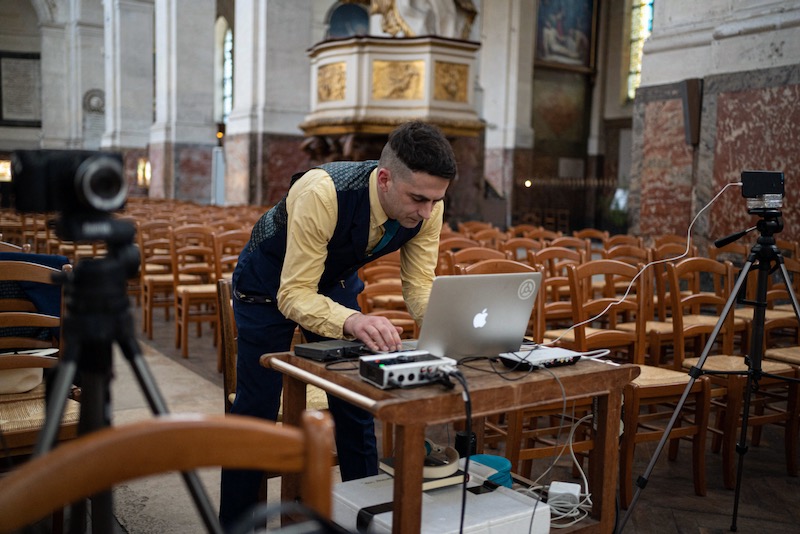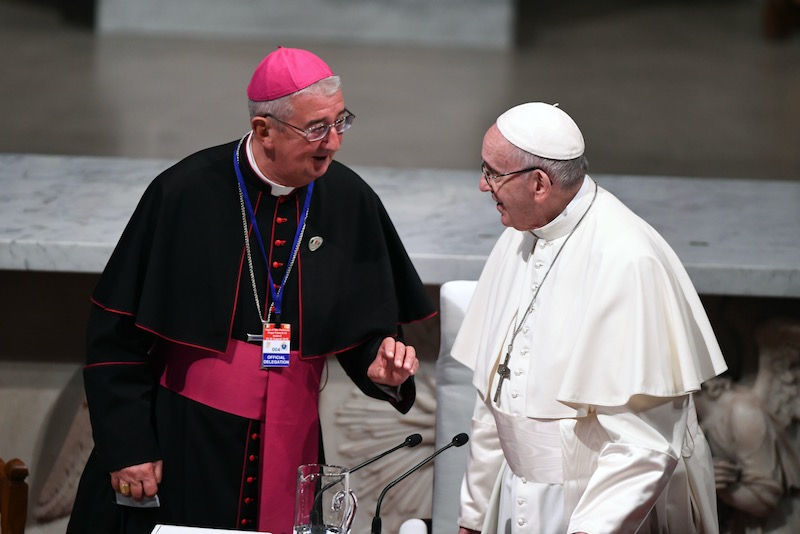The next Archbishop of Dublin needs to be someone who can provide spiritual guidance in a very secularised world, Archbishop Diarmuid Martin has said of his future successor in the Irish Church’s largest diocese.
Speaking to The Tablet about turning 75, while cocooned under Government directives aimed at stemming the spread of the Covid-19 virus, Archbishop Martin admitted: “It wasn’t quite the usual birthday celebration.”
He said the pandemic measures were demanding and for “a person like me who is maybe hyperactive, it is inconvenient and frustrating”.
However, his 21st birthday was similarly curtailed as it fell on Good Friday while he was studying in the seminary.
“We have to face the fact that this hardship is going to continue,” he emphasised and said this was necessary to save the lives of others and to help combat “this extremely complicated and virulent virus”.
Asked if he had submitted his resignation to Pope Francis on his 75th birthday, Archbishop Martin, he said: “I communicated with the Pope some months ago and explained what I felt was good for the Archdiocese of Dublin. My feeling is that with the challenges that are coming, it is a good time to bring in a younger person – new life. I also said very clearly that I have great confidence in the body of our priests who are really committed to a process of renewal in the Church.”
The Archbishop, who succeeded Cardinal Desmond Connell in April 2004, underlined that “a long period of worthless speculation” would be “very deleterious” and added: “most of those who speculate are wrong”.
He told The Tablet: “One of the important things that a bishop has to do when he retires is to get out from under the feet of his successor.” He will stay in Dublin and is currently looking for an empty presbytery where he could live.
In Archbishop Martin’s opinion, the next archbishop of Dublin needs to be a competent administrator. He also needs to have “a great sensitivity to the realities of the poor. Parts of this diocese are by far the poorest in our society.”
Recalling Pope Francis’ visit to Ireland in 2018, he said the Pontiff’s visit to the inner city parish on Sean McDermott Street had made him “extremely happy”.
“It is one of the places where you see the horrors that have been done by drugs and violence. There is a believing community who keep going with great resilience” despite the “terribly destructive factors in their neighbourhood”.
Dr Martin warned that there “is a real danger today that we will become a middle class church” and fail to see the poor and vulnerable. Referring to the sense of satisfaction among many catholics about webcam Masses, the Archbishop highlighted that there were many isolated elderly who have no computers and no relatives. “You really have to be a church community which reaches out to those people; that sort of witness is very important.”
Acknowledging that the pandemic and the measures enforcing social distancing have been very hard for those who have lost loved ones, the Archbishop said they need support. “I think for example of somebody who buries their spouse in the shortened funeral rite and then goes home to isolation. We can show solidarity to those who are mourning and show our response to those who are dead – one [way] is to keep in contact.”
He also suggested that the Church should consider bringing those bereaved during the pandemic together at a later stage for a service in the same way as the Chrism Mass in Dublin is to be held later in the year. “We could very easily be dealing with a huge number of people. I think a lot of people would want something very personal.”
He said the lessons for society from the Coronavirus pandemic were simple things like good neighbourliness and the generosity of young people, things which “we will, in the end, be very proud of”.
He expressed some reserve over suggestions that the crisis would see people turn to religion. “They said in the last economic crisis that an economic crisis is good for religion. That is very superficial.
“There are people today who may have said a prayer and they haven’t said one for a long time but that isn’t a long-term commitment that is going to bring people back to faith. Many believers may even be challenged by what is happening,” he said.



 Loading ...
Loading ...